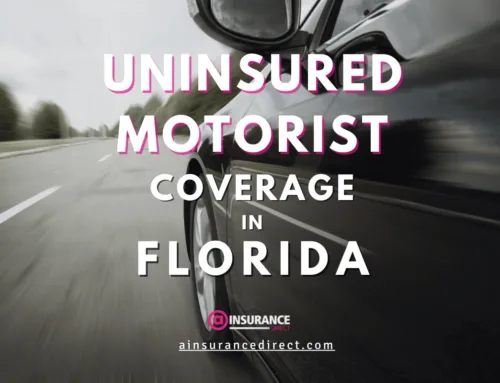
What is a Rebuilt Title?
A rebuilt title car is a vehicle that has previously been declared a total loss by an insurance company but has since been repaired and restored to a roadworthy condition. The process typically involves significant repairs, often following a collision or natural disaster, and the car must pass inspections to ensure it meets safety standards before it can be re-registered.
Understanding the implications of owning a rebuilt title car is crucial, especially when it comes to insurance. Insurers may view these vehicles as higher risk due to their history, which can lead to higher premiums or limited coverage options. Additionally, resale value can be affected; buyers may be hesitant or require further assurances about the vehicle’s condition and reliability.
For those considering purchasing a rebuilt title car, it’s essential to conduct thorough research and obtain detailed repair records. This diligence not only helps in understanding the vehicle’s past but also aids in negotiating better insurance terms. While rebuilt title cars can offer significant savings compared to their clean-title counterparts, being informed about their implications for insurance is vital for making sound financial decisions.
How to Find the Right Auto Insurance Provider for Your Rebuilt Title Car
When it comes to finding the right auto insurance provider for your rebuilt title car, there are several key factors to consider. A rebuilt title indicates that a vehicle has been previously declared a total loss but has since been repaired and restored to roadworthy condition. This unique status can complicate the insurance process, so it’s essential to approach it with care.
First, get a quick auto insurance quote from our website. Not all providers offer coverage for these types of cars, so it’s crucial our licensed agents help you with the best rate and coverage. We will look for carriers with experience in handling Insurance for a rebuilt title and positive customer reviews.
Next, compare quotes from multiple providers. Since insurance rates can vary significantly based on the vehicle’s history and condition, obtaining several estimates will help you find the best coverage at an affordable price. Additionally, inquire about specific coverage options tailored for rebuilt vehicles, such as comprehensive or collision coverage.
Finally, don’t hesitate to ask questions about policy details and exclusions related to your rebuilt title car. Understanding what is covered and any limitations will ensure you select an insurance provider that meets your needs effectively. By taking these steps, you can confidently navigate the complexities of insuring your rebuilt title vehicle while securing the protection it deserves.
Insurance Fact
Challenges When Insuring Rebuilt Title Cars and How to Overcome Them
When it comes to insuring rebuilt title cars, several common challenges can arise, but understanding these issues can help you navigate the process more effectively.
One of the primary challenges is the perception of risk associated with rebuilt title vehicles. Insurers often view these cars as higher risk due to their history of being salvaged or significantly damaged. This can lead to higher premiums or even difficulties in finding coverage. To overcome this, it’s essential to research insurance companies that specialize in insuring rebuilt titles and compare their policies and rates.
Another challenge is accurately assessing the car’s value. Rebuilt title cars typically have a lower market value than similar vehicles with clean titles, which can complicate claims processes in the event of an accident. To mitigate this issue, consider getting a professional appraisal done on your vehicle after its repairs are complete. Having documented evidence of its condition and value will be beneficial when discussing coverage options with insurers.
Some insurance companies may impose restrictions on coverage types for rebuilt title cars, such as limiting comprehensive or collision coverage. It’s crucial to thoroughly read policy details and ask questions about any limitations before purchasing insurance.
By being proactive and informed about these challenges, you can ensure that you find suitable insurance for your rebuilt title car while protecting your investment effectively.

Does Insurance For Rebuilt Title Cars Affect Rates? How and Why?
When it comes to purchasing a vehicle with a rebuilt title, many potential buyers wonder how this designation impacts insurance rates. A rebuilt title indicates that a car has previously been declared a total loss due to damage but has since been repaired and restored to roadworthy condition. While this can present an opportunity for significant savings, it’s crucial to understand the implications for insurance.
Insurance companies typically view vehicles with rebuilt titles as higher risk compared to those with clean titles. This perception stems from the history of significant damage, which may lead insurers to charge higher premiums or limit coverage options. The rationale is straightforward: cars that have been severely damaged may have underlying issues that could affect their safety and reliability.
Moreover, some insurers might categorize rebuilt title vehicles differently in terms of valuation. In the event of an accident or theft, compensation may be based on the car’s pre-repair value rather than its current market value, which can result in lower payouts. Therefore, it’s essential for buyers considering a vehicle with a rebuilt title to shop around and consult multiple insurance providers to fully understand how rates will be affected.
While owning a car with a rebuilt title can offer financial advantages upfront, it is vital for buyers to factor in potential increases in insurance costs and coverage limitations when making their decision.
What Is The Minimum Insurance Coverage Required by Most US States?
| Minimum Insurance Required |
Bodily Injury (BI) | Property Damage (PD) |
Personal Injury Protection (PIP) |
|---|---|---|---|
| Florida (No-Fault) | optional coverage | $10,000 | $10,000 |
| Texas (At-Fault) | $30,000 per person, $60,000 per accident |
$25,000 | optional coverage |
| Tennessee (At-Fault) | $25,000 per person, $50,000 per accident |
$15,000 | optional coverage |
What Is The Average Auto Insurance Cost Per Year?
| Average Cost Per Year | State Minimum Car Insurance | Basic Full Car Insurance | Full Car Insurance |
|---|---|---|---|
| Florida | $835 | $1,620 | $1,920 |
| Texas | $718 | $1,565 | $1,842 |
| Tennessee | $539 | $1,354 | $1,583 |


